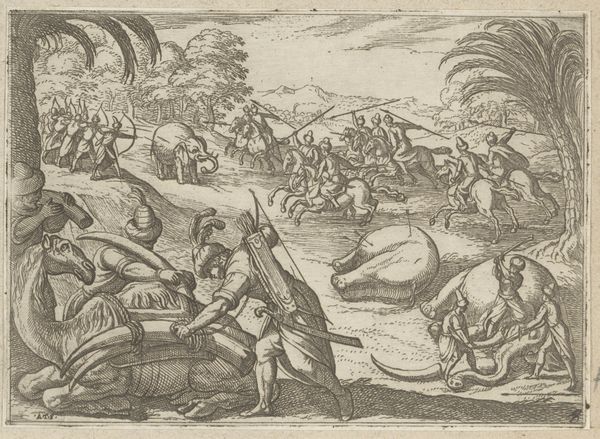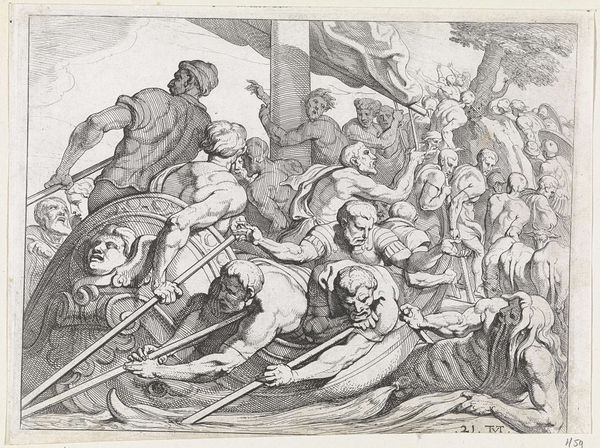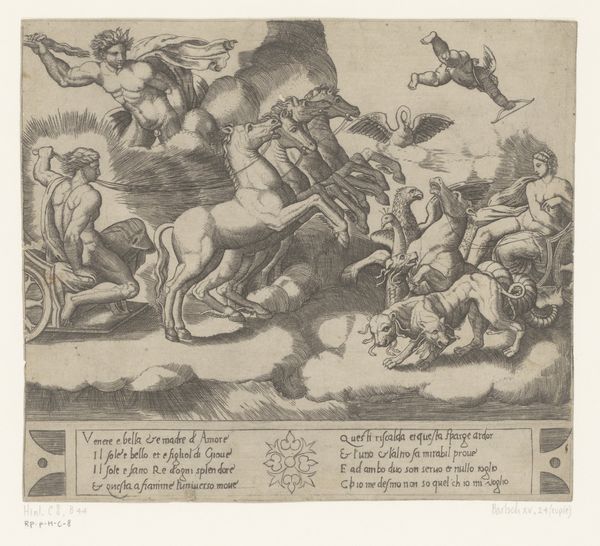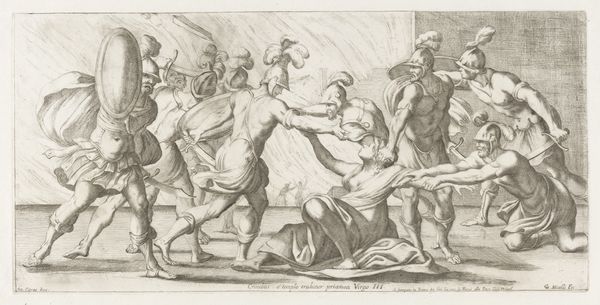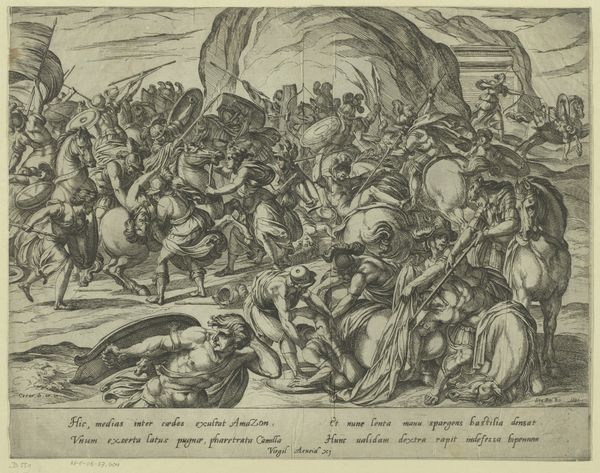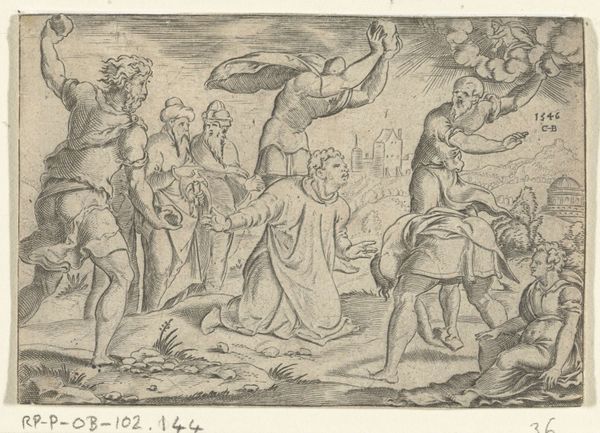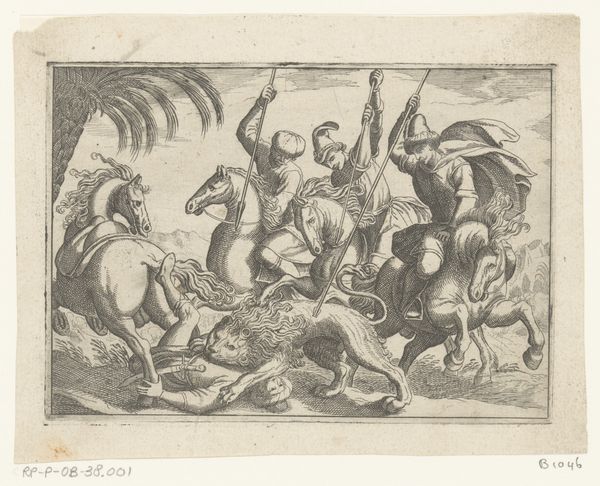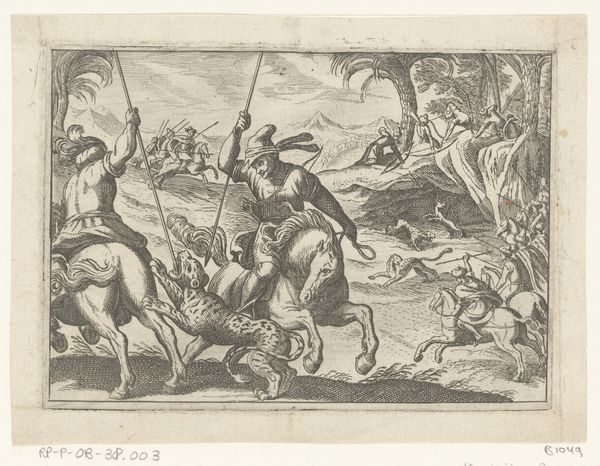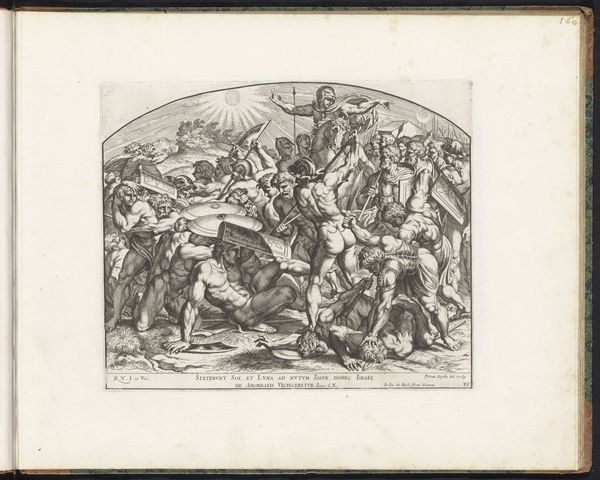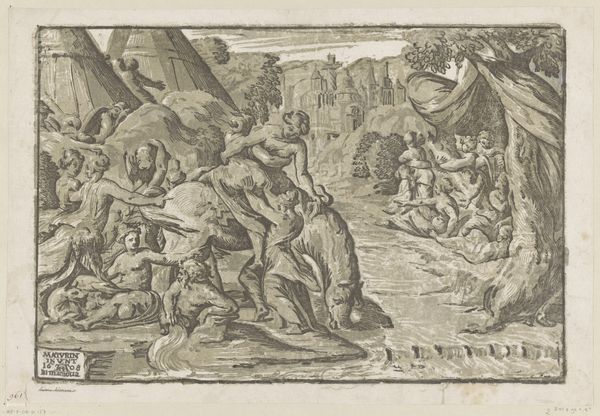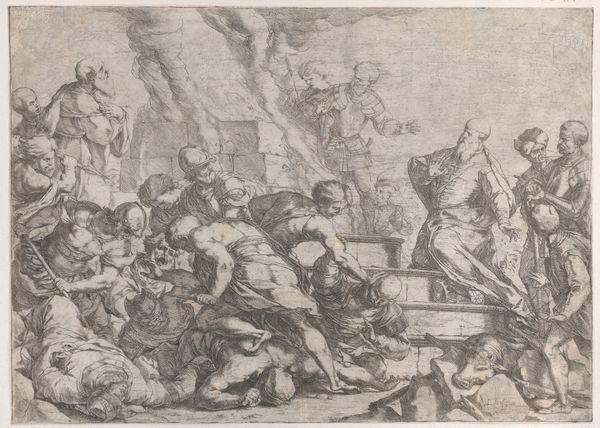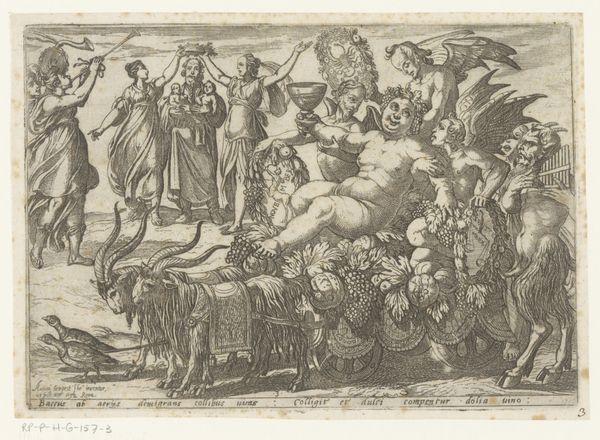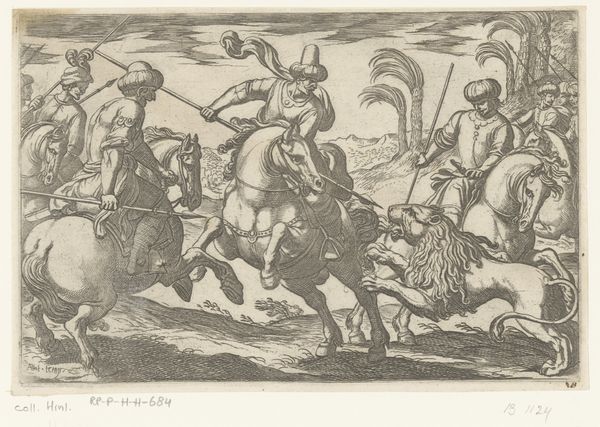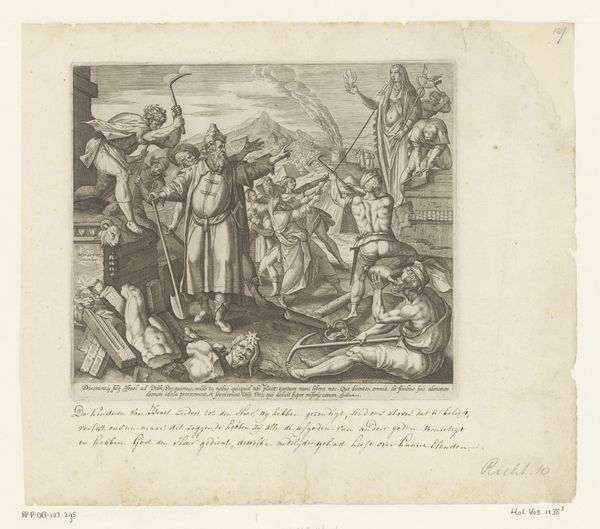
print, etching
#
allegory
#
baroque
# print
#
etching
#
figuration
#
history-painting
Dimensions: height 104 mm, width 118 mm
Copyright: Rijks Museum: Open Domain
This print, "Apollo en Diana doden de kinderen van Niobe," was made by Antonio Tempesta sometime before 1630 using the intaglio process of etching. Acid was used to bite lines into a metal plate, which was then inked and printed. Look closely, and you can see that the entire composition is built from a dense accumulation of such lines. What’s interesting is that Tempesta wasn’t just making an image; he was also participating in a sophisticated system of production. Prints like this one were relatively cheap to produce and distribute widely. It’s easy to forget how radical this was, but the ability to disseminate images on a mass scale completely changed the landscape of visual culture. Suddenly, mythological scenes like this one were available not just to the wealthy, but to a much broader public. The print’s very material—an inked impression on paper—is inseparable from this social and economic context. It democratized art.
Comments
No comments
Be the first to comment and join the conversation on the ultimate creative platform.
